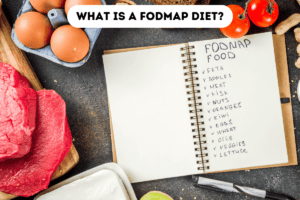There is a belief that even more than 90% of our actions are habitual. Mostly, we go to work by the same route, we go to the same shops, and we do the same work tasks every day. Also, we have habits associated with food. Some people like eating something sweet after each meal, or they eat sweets when they feel sad. Others always eat in front of the television, snacking all the time. All these habits are formed during our life. Some of them are good, and some of them are wrong.
Speaking about healthy eating and weight loss, bad habits are the reason why we don’t achieve our weight loss goals. It can be tough to change your habits because it’s like your zone of comfort, things that you get used to. Changes always mean you must go out of your comfort zone, which is problematic. In this article, I would like to speak about eating habits, factors that influence eating habits, how habits are formed, and how we could change them. Some of the most common factors that influence eating habits are social factors, psychological factors, senses, and physiological factors.

Social factors. Social influence includes our upbringing, cultural background, and religion. During childhood and upbringing, our parents are one of the most critical influences on our eating behaviour. They teach us about the way we eat, the times we eat, how much we eat, and which types of foods we choose to consume. For example, you can be already full, but you will not stop eating until you finish all the food on your plate because that was something you were taught as a child. How much to eat and the portion size of a dish are also first introduced to us in childhood. Culture and religion also influence our food choices. For example, Muslims don’t eat pork, don’t drink alcohol, and are eating just that food which is halal.
The influence of peer pressure from loved ones, colleagues, and friends also affects our food choices. We all experience peer pressure when our friends offer us another drink in the pub, or loved ones encourage us to eat that cake after our main meals and forget about our stupid idea to eat healthy. It really can be challenging to say no. Also, work-related issues such as income and work schedules can affect our food choices.
Psychological factors. As to psychological factors, our mood, emotional status, and psychological well-being will all affect our food choices. Food is fuel for our bodies, but sometimes we associate food with reward, comfort, pleasure, and security. And this is why some people eat sweets when they feel bad – comfort eating. Comfort eating can be an excellent short-term solution to a short-term problem, but in the long term, it becomes a problem. Comfort eating will lead to overeating, leading to weight gain and weight gain, which leads to renewed sadness and comfort eating. And the result of all these – is weight gain.
Also, our food choices can be affected by media campaigns, celebrity endorsements, fad diets, food scares, and other external influences. These external influences aim to sell us some product, get money from us, or just become popular. And not always their suggestions are suitable. There is a lot of disinformation out there, and you need to know how to choose proper information. So, next time you read something about healthy eating, ask yourself, “ Where does this information come from? Is it a reliable source? Who wrote these, and are they enough qualified in this subject?”
Senses. One more way marketing campaigns can manipulate our food choices is through our minds. How food looks, smells, sounds, tastes, and feels (its texture) can all influence whether we choose to eat it or not. Now, think about what trigger foods you have. As for me, it’s chocolate or something sweet. The best option to avoid these foods is to find alternatives. For example , I buy more fruits or something sweet instead of chocolate, where the sugar level is low.
Also, an excellent suggestion is not to go shopping on an empty stomach. You can swear to yourself that you will not eat junk food anymore, but when you are too hungry, you go shopping and see all these crisps, sweets, and other junk food, and you can’t resist it.
Physiological factors. Factors like hormone changes, stress, pregnancy, illness, and genes can all affect our eating preferences. As we discussed above, stress can lead to comfort eating, and comfort eating can lead to obesity. In this case, we need to find strategies for dealing with stress. It can be meditation, yoga, music, physical activities like running, etc.
Our genes can have a significant influence on us. For example, we all have different body types. Someone who is Ectomorph will have a long and lean body, with little body fat and little muscle. For them, it is difficult to gain weight. Mesomorphs can develop muscles quickly and have more muscle than fat. Mesomorphs are typically not overweight or underweight. Endomorphs can quickly put on muscle mass, but they also have a slower metabolism, higher body fat composition, and difficulty losing weight. More about different body types you can read in my article: “3 main body types”.
But remember that genes can only influence several factors, such as increasing or decreasing energy intake. You can have a predisposition for eating fatty foods and mainly a sedentary lifestyle (inherited from your parents). However, it is still possible to reduce weight since the rules of energy balance still apply. Increasing energy output and decreasing energy intake will lead to a reduction in body fat. (The secret of all diets).
Also, physiological factors include food allergies, food intolerance, and food aversion. It is essential to understand the difference between them. A food allergy is a potentially life-threatening reaction to food involving the immune system. Food intolerances can make people’s lives unpleasant and must be sorted out by a medical expert. Finally, food aversions are situations where you may hate food, but eating it is unlikely to harm you. You can read more about food and illnesses in my article “Food and Illness”.
Are you really hungry?
Looking at everything I wrote above, we can state that our eating behaviour can be influenced by social, psychological, sensory, and physiological factors. And because of all these factors, we mostly eat just by habit, without realizing how hungry we are. In other words, we eat by habit, not because we are hungry. We can even think we are hungry, but the trigger can be completely different. For example, senses like smells, sounds, and tastes of food can mislead us, making us buy junk food when we are not hungry. So, one important rule is “Eat just when you are hungry!”.

How do you improve your eating habits?
One of the ways to find your bad eating habits is just to ask yourself:
- What habits do you have?
- Do you eat in front of the television or prefer to be seated with the family at a table?
- What eating behaviour of yours do you consider to be habitual?
- Can you remember where this habit came from?
- Does it return to your upbringing, or is it a more recently formed habit?
Next, after you find your bad habits, consider where they came from and how you can fight with them. After, try to change your bad habits. Always make a small step – one bad habit per week. Take one bad eating habit and work with it for one week; take another next week.
Most people have such bad habits like:
- Always have something sweet after each meal.
- Always finish everything on their plate regardless of how hungry they are.
- Has enormous portion sizes.
- Always has a takeaway with friends on a Friday night
- Always eat meals with their family in front of the television
The second and best way to fight your bad eating habits is a food diary. The purpose of a food diary is to record what and when you eat during the week. When making a food diary, it’s important to rate your hunger on a scale of 1–10, with 1 being very full and 10 being starving. This could help you to focus on eating just when you are hungry. It will also help you see how to manage your hunger better throughout the day.
Also, it’s essential to record your mood, the place where you were eating, and who was with you when you were eating. These will help you see what you eat daily, identify your eating habits, and start improving them. You can read about the importance of a food diary and examples of how to make a food diary in my article: “A step-by-step guide to creating your nutrition diary and why it is so important”.
Conclusion
- More than 90% of our actions are habitual. We go to work by the same rote, we go to the same shops, we do the same work tasks, and we eat the same food every day. Sometimes, these things change, but mostly, it’s habitual.
- Our eating behaviour can be influenced by social, psychological, sensory, and physiological factors. Because of all these factors, we mostly eat just by habit, without realizing how hungry we are. We can even think, that we are hungry, but the actual trigger can be completely different.
- You can fight your lousy eating habits just when you know them. The best way to find out your habits is by asking yourself specific questions about habits (shoved above) or a food diary. The purpose of a food diary is to record what and when you eat during the week. These will help you see what you eat daily, identify your eating habits, and start improving them. To improve your eating habits, first, you have to find your bad eating habits, consider their origins, and how to fight them. Then, take a small step – one lousy habit per week. Take one bad eating habit and work with it for one week. Next week take another one.




